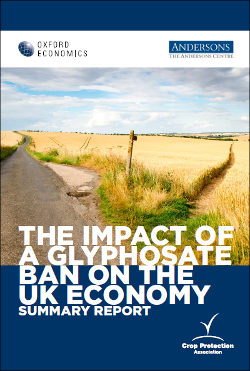[ad_1]
Parliament’s decision
In October 2017, the European Parliament voted to phase out glyphosate by 2022. For many years, scientists have warned people against glyphosate, however, it’s taken a two-year debate for the European Parliament to vote 355 to 204 in favour of its ban. Consequently, the European Commission must now adopt measures to phase out the use of glyphosate across the entire EU by mid-December 2022. However, it’s worth remembering that this was a non-binding vote.
Members of the European Union and European Commission must now stop the use of glyphosate on farms, in public parks, and in households whenever other biological pest control systems are available.
The history of glyphosate
The sale of glyphosate began in 1974. Due to it being commonly sold, glyphosate-based formulations are now used in: farming, agriculture, forestry, aquatic environments, streets, parks, and schools.
How popular is glyphosate?
Although it’s probable that parents and the general public will consider the ban of a harmful toxin good news, many in the industry don’t welcome it with open arms due to its effectiveness and wide usage.
According to research from the Soil Association, the use of glyphosate in UK farming has increased by 400% over the past 20 years. The Guardian has also reported that there has almost been enough of the herbicide sprayed since its creation that it would cover every cultivable acre of Earth.
Unfortunately, it’s because of its prevalence that glyphosate has been found in bread, biscuits, cereals, crackers, and crisps.
The impact on the food industry
Banning glyphosate has the potential to cause huge ramifications on the food sector that could result in a hike in prices for the public. Lycetts, a crop insurance provider from the UK, investigates further:
A Polish orchard farmer with first-hand experience of using the herbicide commented: “The public should know that withdrawing glyphosate from the market will have a very negative impact on fruit farming. Production costs will definitely go up as we look to use more time and energy consuming methods of weed control. When production costs go up, prices in shops also go up and people should be aware of this. The use of other herbicides would require a greater number of applications, which would result in more environmental pollution. For fruit farmers, there is no alternative to glyphosate because there are no other products that do what it does.”
Disadvantages of glyphosate
The major concern over glyphosate is the contamination of food that could cause serious health risks to the public. Fears have long been raised that the herbicide is a hormone disrupter that is linked to birth defects, the development of cancerous tumours and other developmental disorders. Some scientists have also argued that there is no safe lower level for human consumption.
How will the ban affect European railways?
Cross-contamination of a dangerous toxin and food on our shelves is obviously a massive worry – both for consumers and producers. But what are the impacts of banning glyphosate for other industries? Weeds that are left unchecked can significantly restrict track visibility, track access for workers and possibly even render a line impassable in severe cases across Europe’s railways.
Prohibiting glyphosate will mean established processes will have to be scrapped, which is not an easy task when the alternative techniques are less efficient. Specialist operator Weedfree on Track has been combatting weed problems for over half a century through a method which sees a “weed killer train” accurately spraying a glyphosate solution onto areas which have been identified by a high-tech camera as having weeds with a specific amount of chlorophyll content.
Operations manager at Weedfree on Track, Jonathan Caine, said: “We’ve carried out a number of trials to see how much more effective the train is than manual methods and have estimated that manually doing the same job, in the same time frame, can cost up to 40 times more.”
Aside from the process of killing weeds, can we not at least find a substitute solution that is less harmful? Jean-Pierre Deforet, a chemist at Belgian railway authority Infrabel, doesn’t think so. He pointed out in a Growing Our Future article: “If glyphosate were to be banned then we would have to find an alternative. There are currently no alternatives that are as effective, which would cause a huge problem for Belgium’s railways. The alternatives are to use mulch or to spray manually. But allowing people onto the tracks would cause another, bigger safety issue than spraying from the train.”
Despite uproar in the industry, glyphosate is set to soon be a thing of the past.
Additional source:
https://www.soilassociation.org/our-campaigns/not-in-our-bread/what-is-glyphosate/
[ad_2]




